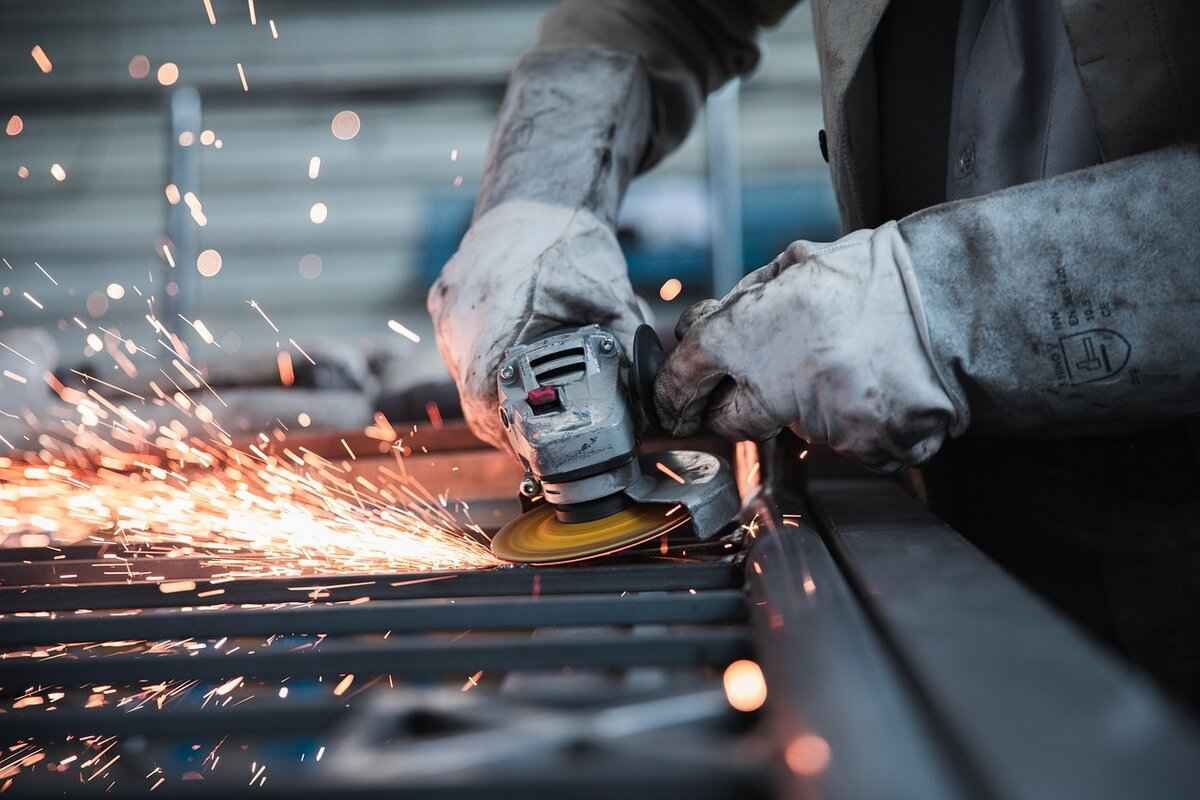This article delves into effective strategies for managing part-time remote work while pursuing academic studies, ensuring productivity and success in both areas.
Understanding the Challenges
Balancing work and study presents unique challenges that necessitate careful planning and time management. Students often find themselves juggling multiple responsibilities, leading to stress and potential burnout. Recognizing these challenges is the first step toward effective management.
Time Management Techniques
Effective time management is crucial for students juggling work commitments. Techniques such as the Pomodoro Technique can significantly enhance productivity and focus. This method involves working in short, concentrated bursts followed by breaks, which can help maintain energy levels.
- Prioritizing Tasks: Identifying and prioritizing tasks helps manage workloads efficiently, ensuring that both work and study requirements are met.
- Creating a To-Do List: A structured to-do list provides clarity on daily tasks, helping visualize priorities and deadlines.
- Utilizing Digital Tools: Calendar apps and task managers can streamline scheduling, making it easier to balance commitments.
Setting Realistic Goals
Establishing achievable goals for both work and study can help maintain motivation and direction, reducing the risk of burnout. It’s important to set specific, measurable, attainable, relevant, and time-bound (SMART) goals.
Establishing a Routine
Creating a consistent daily routine provides structure, helping allocate specific times for work, study, and relaxation. This routine should include:
- Finding Your Optimal Study Environment: Identifying a conducive study environment can enhance focus and productivity.
- Incorporating Breaks: Regular breaks are essential for maintaining mental clarity and preventing fatigue.
Communicating with Employers and Educators
Open communication with employers about study commitments and with educators about work schedules fosters understanding and flexibility. Requesting flexible work hours can significantly ease the pressure of balancing both responsibilities.
Maintaining a Healthy Work-Life Balance
Striking a balance between work, study, and personal life is vital for overall well-being. Incorporating self-care practices, such as exercise and mindfulness, can help recharge energy and maintain motivation.
Conclusion
By implementing these strategies, students can effectively manage their part-time remote work while pursuing their academic goals. A well-structured approach not only enhances productivity but also supports personal growth and success in both areas.

Understanding the Challenges
Balancing work and study is a complex endeavor that poses several unique challenges for students. The dual commitment to both academic responsibilities and professional obligations often leads to feelings of overwhelm and stress. This section will delve into the various hurdles faced by individuals trying to manage these two significant aspects of their lives.
Firstly, one of the primary challenges is time constraints. Students often find themselves juggling tight deadlines for assignments while also needing to fulfill work commitments. This can lead to a constant battle against the clock, making it difficult to allocate sufficient time to both studies and job responsibilities.
Additionally, the mental load associated with managing multiple priorities can be substantial. Students may struggle with maintaining focus and motivation, particularly when they feel pulled in different directions. This can result in decreased productivity in both work and academic performance.
Furthermore, lack of support can exacerbate these challenges. Many students may not have access to resources or understanding from employers regarding their academic schedules, leading to conflicts and added stress. Similarly, educators may not always be aware of students’ work commitments, which can hinder their ability to provide necessary academic support.
Lastly, the risk of burnout is significant when trying to balance these two demanding areas. Without proper self-care and time management strategies, students may find themselves exhausted and unable to perform effectively in either realm.
In conclusion, understanding the challenges of balancing work and study is the first step toward developing effective strategies to manage both successfully. By recognizing these obstacles, students can begin to implement solutions that promote a healthier balance and enhance their overall productivity.

Time Management Techniques
Time management is a vital skill for students balancing part-time remote work and academic commitments. Mastering this skill can significantly enhance both productivity and focus. One effective technique that has gained popularity is the Pomodoro Technique, which involves working in focused bursts followed by short breaks. This method not only helps maintain concentration but also prevents burnout by incorporating regular pauses.
To implement the Pomodoro Technique, follow these steps:
- Choose a task you want to work on.
- Set a timer for 25 minutes, known as a “Pomodoro.”
- Work on the task until the timer goes off.
- Take a 5-minute break to relax and recharge.
- After completing four Pomodoros, take a longer break of 15-30 minutes.
In addition to the Pomodoro Technique, students can explore other effective time management strategies:
- Time Blocking: Allocate specific blocks of time for different tasks, ensuring that you dedicate uninterrupted time to both work and study.
- Task Prioritization: Use methods like the Eisenhower Matrix to distinguish between urgent and important tasks, allowing you to focus on what truly matters.
- Setting SMART Goals: Establish goals that are Specific, Measurable, Achievable, Relevant, and Time-bound to provide clear direction and motivation.
By integrating these techniques, students can not only enhance their productivity but also achieve a harmonious balance between work and study. Developing strong time management skills is essential for academic success and personal well-being.
In conclusion, effective time management techniques such as the Pomodoro Technique and others can empower students to navigate the demands of part-time remote work while excelling in their studies. By prioritizing tasks, setting realistic goals, and creating structured routines, students can foster a productive and fulfilling academic experience.
Prioritizing Tasks
is a crucial skill for anyone balancing multiple responsibilities, especially for students and part-time workers. Effectively identifying and prioritizing tasks can significantly enhance productivity, reduce stress, and ensure that both academic and work-related obligations are met without feeling overwhelmed.
To begin with, it is essential to understand the importance of task prioritization. By categorizing tasks based on urgency and importance, individuals can focus on what truly matters. This approach not only helps in managing workloads efficiently but also fosters a sense of accomplishment as tasks are completed in a structured manner.
| Task Type | Urgency | Importance |
|---|---|---|
| Study Assignment | High | High |
| Work Project | Medium | High |
| Household Chores | Low | Medium |
One effective method to prioritize tasks is to create a to-do list. This list serves as a visual representation of what needs to be accomplished, allowing individuals to break down larger projects into manageable steps. By checking off completed tasks, one can gain a sense of progress and motivation.
- Daily Review: Spend a few minutes each morning to review and adjust your to-do list.
- Set Deadlines: Assign realistic deadlines for each task to maintain accountability.
- Use Digital Tools: Leverage apps like Trello or Todoist to track tasks and deadlines effectively.
Moreover, it is vital to remain flexible. Life can be unpredictable, and sometimes tasks may need to be reassessed based on changing circumstances. Regularly revisiting your priorities ensures that you stay on track and adapt to new challenges.
In conclusion, is not just about managing time; it’s about creating a balanced approach to work and study. By implementing structured techniques and remaining adaptable, individuals can navigate their responsibilities with greater ease and confidence.
Creating a To-Do List
is an essential practice for anyone balancing multiple responsibilities, particularly for students managing part-time remote work alongside their studies. A well-organized to-do list serves as a roadmap, providing clarity on daily tasks and enabling individuals to visualize their priorities and deadlines. This strategy not only helps in maintaining focus but also enhances productivity by breaking down larger projects into manageable steps.
When crafting a to-do list, consider the following steps to maximize its effectiveness:
- Identify Tasks: Begin by listing all tasks you need to accomplish. This could include assignments, work projects, or personal errands.
- Prioritize: Rank tasks based on urgency and importance. Use a system such as the Eisenhower Matrix to differentiate between what is urgent and what is important.
- Set Deadlines: Assign realistic deadlines to each task. This will help you stay on track and avoid last-minute rushes.
- Break It Down: For larger tasks, break them into smaller, actionable steps. This makes the workload less daunting and allows for a sense of accomplishment as you complete each step.
- Review Regularly: At the end of each day or week, review your list. Adjust priorities and add new tasks as necessary to ensure you remain organized.
Incorporating digital tools can further enhance your to-do list experience. Applications like Trello, Todoist, or even simple calendar apps can help you set reminders and visualize your tasks more effectively. By utilizing these tools, you can streamline your workflow and maintain a better balance between your work and academic responsibilities.
Ultimately, a well-structured to-do list not only aids in managing your time but also reduces stress. By having a clear overview of your tasks, you are better equipped to tackle your day with confidence and purpose.
Utilizing Digital Tools
In today’s fast-paced world, balancing commitments such as part-time work and academic studies can be a daunting task. However, leveraging digital tools can significantly enhance your ability to manage your time effectively and streamline your daily activities. Here’s how you can make the most of these tools.
| Digital Tool | Purpose | Benefits |
|---|---|---|
| Calendar Apps | Scheduling events and deadlines | Helps visualize your commitments, reducing the risk of overbooking |
| Task Managers | Organizing tasks and to-do lists | Enhances productivity by allowing you to prioritize and track progress |
| Reminder Apps | Setting alerts for important tasks | Ensures you never miss a deadline or important meeting |
By utilizing calendar apps, you can easily schedule your classes, work shifts, and study sessions in one place. This not only helps in visualizing your daily agenda but also aids in avoiding scheduling conflicts. For instance, apps like Google Calendar allow you to set recurring events, so you never forget your regular commitments.
Additionally, task managers such as Todoist or Trello enable you to break down larger projects into manageable tasks. This approach not only keeps you organized but also provides a sense of achievement as you check off completed items. Prioritizing tasks based on deadlines or importance can further enhance your workflow.
Moreover, setting up reminders for critical tasks ensures that you stay on track. Whether it’s a reminder for a project deadline or a scheduled study break, these alerts can help maintain your focus and prevent last-minute rushes.
In conclusion, incorporating digital tools into your daily routine can transform the way you manage your time and commitments. By staying organized and proactive, you can create a more balanced approach to both work and study, leading to greater success in both areas.
Setting Realistic Goals
is a critical aspect of balancing part-time remote work and academic studies. By establishing achievable goals, individuals can maintain a clear sense of direction and motivation, which is essential in preventing burnout.
When juggling multiple responsibilities, it’s vital to set goals that are not only ambitious but also realistic. This ensures that you remain motivated without feeling overwhelmed. Here are some key strategies to consider:
- Break Down Larger Goals: Instead of aiming for a broad objective, break it down into smaller, manageable tasks. This approach allows for a sense of accomplishment as each mini-goal is achieved.
- Set Specific Deadlines: Assign deadlines to your goals to create urgency. This can help prioritize tasks and keep you focused on what needs to be done.
- Regularly Review Progress: Schedule weekly or bi-weekly check-ins to assess your progress. Adjust your goals as necessary based on your workload and personal circumstances.
- Stay Flexible: Life can be unpredictable, and it’s essential to be adaptable. If you find that a goal is too challenging or unrealistic, don’t hesitate to modify it.
Additionally, consider utilizing tools like digital planners or goal-tracking apps to visualize your objectives and deadlines. This can enhance your productivity and ensure that you stay on track.
In conclusion, setting realistic goals is not just about achieving tasks; it’s about creating a sustainable balance between work and study. By implementing these strategies, you can foster a productive environment that minimizes stress and maximizes success.

Establishing a Routine
is a crucial aspect of successfully balancing part-time remote work and academic studies. A well-defined routine not only provides structure to your day but also ensures that you allocate specific times for work, study, and relaxation. This structured approach can significantly enhance your productivity and overall well-being.
Creating a daily routine helps in setting clear expectations for what needs to be accomplished. Here are some strategies to consider:
- Morning Preparation: Start your day with a consistent morning ritual. This can include exercise, breakfast, and a quick review of your goals for the day.
- Time Blocks: Allocate specific blocks of time for work and study. For example, dedicate two hours in the morning for studying and another two hours in the afternoon for work tasks.
- Scheduled Breaks: Incorporate regular breaks into your routine. Short breaks can help you recharge and maintain focus. Consider the Pomodoro Technique, which involves working for 25 minutes followed by a 5-minute break.
- Evening Reflection: End your day by reflecting on what you accomplished. This practice can enhance your motivation for the next day and help you adjust your routine as needed.
Flexibility is also essential in your routine. Life can be unpredictable, and sometimes adjustments need to be made. By remaining adaptable, you can still stay on track without feeling overwhelmed.
In conclusion, establishing a routine tailored to your unique needs can lead to improved focus and productivity. By dedicating specific times for work, study, and relaxation, you can effectively manage your responsibilities and achieve a healthy work-life balance.
Finding Your Optimal Study Environment
is crucial for enhancing academic performance and productivity. A well-chosen study space can significantly impact your ability to concentrate and absorb information effectively. Here are some key factors to consider when identifying the best environment for your study sessions.
- Minimize Distractions: Choose a location that is free from interruptions. This might mean finding a quiet corner in your home or a secluded spot in a library. Reducing noise and visual distractions can help maintain focus.
- Comfortable Seating: Invest in a comfortable chair and desk setup. Ergonomics play a vital role in your ability to study for extended periods without discomfort or fatigue.
- Proper Lighting: Ensure your study area is well-lit. Natural light is ideal, but if that’s not possible, use bright but soft artificial lighting to reduce eye strain.
- Organized Space: Keep your study area tidy and organized. A clutter-free environment can enhance your ability to think clearly and stay focused on your tasks.
- Personal Touches: Add elements that inspire you, such as motivational quotes, plants, or artwork. Personalizing your space can create a positive atmosphere conducive to learning.
Furthermore, consider the transition between work and study tasks. Establishing a distinct area for each activity can help your mind switch gears more effectively. For instance, if you work at a desk, try studying at a different location, like a cozy nook or even outdoors, to signal to your brain that it’s time to focus on academic work.
In conclusion, finding the right study environment is a vital step in optimizing your learning experience. By creating a space that minimizes distractions and enhances comfort, you can significantly improve your focus and productivity, making it easier to juggle both work and study commitments.
Incorporating Breaks
In the fast-paced world of part-time remote work and study, regular breaks are not just a luxury; they are a necessity. Taking time to step away from your tasks can significantly enhance mental clarity and help prevent the onset of fatigue. This, in turn, ensures that you maintain sustained productivity throughout the day.
When you engage in continuous work or study sessions, your brain can become overwhelmed, leading to a decrease in focus and efficiency. By incorporating short breaks into your routine, you allow your mind to recharge, which can lead to improved performance when you return to your tasks. Here are some effective strategies for incorporating breaks:
- Set a Timer: Use techniques like the Pomodoro Technique, where you work for 25 minutes and then take a 5-minute break. This structured approach keeps you focused while ensuring you take necessary pauses.
- Change Your Environment: During breaks, try to step outside or move to a different room. A change of scenery can refresh your mind and enhance creativity.
- Engage in Physical Activity: Simple stretching or a quick walk can boost circulation and energy levels, making it easier to dive back into work or study.
- Practice Mindfulness: Take a few minutes to meditate or practice deep breathing. This can help clear your mind and reduce stress.
It’s essential to recognize that breaks are not merely time off but rather a crucial element of your productivity strategy. By allowing yourself these moments of rest, you can return to your tasks with renewed focus and energy, ultimately leading to better outcomes in both your work and studies.
In conclusion, integrating regular breaks into your routine is a simple yet effective way to enhance your overall productivity. Remember that your well-being is just as important as your work and study commitments; taking breaks is a vital part of maintaining that balance.

Communicating with Employers and Educators
In the modern landscape of education and employment, effective communication is essential for achieving a harmonious balance between work and study commitments. Open dialogue with both employers and educators can pave the way for greater understanding and flexibility, which are crucial for success in both arenas.
When discussing your academic obligations with your employer, it is important to be transparent about your study schedule. This transparency allows employers to understand your availability and consider adjustments to your work hours. For instance, if you have classes scheduled during typical work hours, you might request shifts that accommodate your academic commitments. Many employers appreciate proactive communication and may be willing to offer flexible work arrangements, such as remote work options or adjusted hours.
Similarly, when it comes to your educators, keeping them informed about your work commitments can foster a supportive learning environment. If you find yourself struggling to meet deadlines due to work obligations, consider reaching out to your instructors. They may be able to provide extensions or alternative assignments that align better with your schedule. Building a rapport with your educators can also lead to valuable insights and support, helping you navigate the challenges of managing both work and study.
In addition to direct communication, utilizing tools such as shared calendars can enhance collaboration and ensure that both parties are aware of your commitments. This can help in planning meetings, deadlines, and other important events without causing conflicts.
In conclusion, open communication is a fundamental strategy in balancing part-time work and academic responsibilities. By being proactive and transparent with both employers and educators, you can create a more flexible and understanding environment that supports your goals in both areas.
Requesting Flexible Work Hours
In today’s fast-paced world, many individuals find themselves juggling multiple responsibilities, particularly students who are balancing part-time work with their academic commitments. One of the most effective strategies for managing this balance is . This approach not only accommodates personal schedules but also enhances productivity and overall well-being.
Many employers recognize the importance of flexibility in the workplace. They understand that allowing employees to adjust their work hours can lead to increased job satisfaction and lower stress levels. By discussing your academic schedule openly with your employer, you can often find a mutually beneficial arrangement. Here are some key points to consider:
- Be Transparent: Clearly communicate your study commitments and how they affect your availability. This honesty fosters trust and understanding.
- Propose Solutions: Instead of just presenting a problem, come prepared with potential solutions. Suggest specific hours that work best for you while still meeting the needs of your employer.
- Highlight Benefits: Emphasize how flexible hours can improve your performance. A well-rested and focused employee is often more productive.
- Document Everything: After discussions, ensure that any agreements are documented to avoid misunderstandings in the future.
Moreover, many companies are increasingly adopting remote work policies, which can further facilitate flexible hours. By working remotely, you can often create a schedule that aligns perfectly with your study habits and peak productivity times.
In conclusion, requesting flexible work hours is a proactive step toward achieving a harmonious balance between work and study. By fostering open communication with employers and presenting a well-thought-out case, you can create a work environment that supports your academic goals while maintaining your professional responsibilities.
Seeking Academic Support
is a vital aspect for students balancing part-time remote work and their studies. Many students find themselves overwhelmed with coursework while trying to meet work obligations, leading to stress and decreased performance in both areas. Utilizing academic resources such as tutoring services can provide additional support, helping to manage coursework alongside work responsibilities effectively.
By leveraging tutoring services, students can receive personalized assistance tailored to their specific needs. This can include one-on-one sessions focusing on challenging subjects, which can significantly enhance understanding and retention of material. Furthermore, tutors can offer strategies for effective study habits, time management, and exam preparation, all of which are essential for academic success.
In addition to tutoring, many educational institutions provide access to online resources, including study guides, video lectures, and discussion forums. These resources can be invaluable for students who may not have the time to attend in-person classes or study groups due to their work commitments. Engaging with these materials can help reinforce learning and provide flexibility in managing study schedules.
Moreover, students should not hesitate to reach out to their professors or academic advisors for support. Open communication about workload and study challenges can often lead to accommodations such as extended deadlines or alternative assignments. This proactive approach not only demonstrates responsibility but also fosters a supportive academic environment.
In conclusion, seeking academic support through tutoring services and utilizing available resources can significantly alleviate the pressures of balancing work and study. By taking advantage of these supports, students can enhance their academic performance while maintaining their work responsibilities, ultimately leading to a more balanced and successful educational experience.

Maintaining a Healthy Work-Life Balance
is essential for achieving both personal and professional success. In today’s fast-paced world, the lines between work, study, and personal life can often blur, leading to stress and burnout. This article delves into effective strategies for maintaining equilibrium in these areas, ensuring a fulfilling and productive lifestyle.
To begin with, it is crucial to recognize the importance of self-care. Engaging in regular exercise, practicing mindfulness, and dedicating time to hobbies can significantly enhance mental and emotional well-being. These activities not only recharge your energy but also foster creativity and motivation, enabling you to tackle both work and study commitments with renewed vigor.
Next, setting boundaries is vital for a healthy balance. Clearly delineating your work hours from study time and personal life can prevent overlap and reduce stress. This practice allows for more focused and productive sessions, ensuring that you can give your best to each area without feeling overwhelmed.
Moreover, effective communication with both employers and educators is paramount. Discussing your commitments openly can lead to greater understanding and flexibility. Many employers are willing to accommodate flexible work hours, which can alleviate the pressures of juggling multiple responsibilities.
Additionally, establishing a routine can provide much-needed structure to your day. Allocating specific times for work, study, and relaxation fosters a sense of stability, making it easier to transition between tasks. Incorporating regular breaks into your schedule is equally important, as these pauses can enhance mental clarity and prevent fatigue.
In conclusion, maintaining a healthy work-life balance is not merely a goal but a necessity for overall well-being. By prioritizing self-care, setting boundaries, communicating effectively, and establishing a routine, individuals can achieve a harmonious blend of work, study, and personal life. This balance not only promotes productivity but also enhances quality of life, paving the way for long-term success.
Practicing Self-Care
is essential for maintaining both physical and mental health, especially for individuals juggling the demands of part-time work and academic studies. By integrating self-care practices into your daily routine, you can effectively recharge your energy levels and sustain motivation throughout your busy schedule.
One of the most effective self-care practices is exercise. Engaging in regular physical activity not only boosts your physical health but also enhances your mood and cognitive function. Whether it’s a brisk walk, a yoga session, or a workout at the gym, finding an activity you enjoy can significantly improve your overall well-being.
Another vital component of self-care is mindfulness. Mindfulness practices, such as meditation or deep-breathing exercises, can help reduce stress and increase focus. Taking just a few minutes each day to practice mindfulness can lead to improved concentration and a greater sense of calm, allowing you to approach your work and studies with a clearer mind.
Additionally, pursuing hobbies can provide a much-needed escape from daily pressures. Engaging in creative activities, such as painting, writing, or playing a musical instrument, not only fosters relaxation but also stimulates your mind. Hobbies can serve as a wonderful outlet for self-expression and a way to recharge after a long day of work and study.
Incorporating these self-care practices into your routine can lead to numerous benefits, including enhanced productivity and increased motivation. Remember, taking time for yourself is not a luxury but a necessity for maintaining balance in your life. By prioritizing self-care, you can ensure that you remain energized and focused, ready to tackle both your professional and academic responsibilities.
- Exercise: Aim for at least 30 minutes of physical activity most days.
- Mindfulness: Practice meditation or deep breathing for stress relief.
- Hobbies: Dedicate time each week to activities that bring you joy.
In conclusion, integrating self-care into your daily life is crucial for sustaining energy and motivation. By making these practices a priority, you can create a healthier balance between work, study, and personal well-being.
Setting Boundaries
is crucial for anyone balancing part-time remote work and academic studies. Without clear demarcations between these two significant areas of life, individuals may experience increased stress and decreased productivity. Here, we will explore the importance of establishing these boundaries and provide practical tips for doing so effectively.
When work and study times overlap, it can lead to a chaotic environment that hampers focus. To prevent this, it is essential to create a structured schedule that designates specific times for work and study. This approach not only enhances concentration but also allows for a more productive use of time.
- Define Your Work Hours: Clearly outline the hours you are available for work. Communicate these hours to your employer and ensure that they respect this time.
- Set Study Blocks: Allocate specific blocks of time dedicated solely to studying. During these periods, eliminate distractions such as phone notifications and social media.
- Use Visual Reminders: Consider using calendars or planners to visually separate your work and study commitments. This can help you stay organized and aware of your responsibilities.
Additionally, it’s important to incorporate breaks between work and study sessions. These breaks can serve as mental resets, allowing you to transition more smoothly from one task to another. Regular intervals can help maintain energy levels and prevent burnout.
In conclusion, establishing clear boundaries between work and study time is not just about managing time; it’s about creating an environment where both can thrive. By implementing structured schedules, prioritizing tasks, and allowing for breaks, individuals can enhance their focus and productivity in both areas. This balance ultimately leads to greater satisfaction and success in both work and academic pursuits.
Frequently Asked Questions
- How can I effectively manage my time while working part-time and studying?
Effective time management is all about prioritization and planning. Use techniques like the Pomodoro Technique to break your work into manageable chunks. Create a structured to-do list to visualize your tasks and deadlines, and don’t forget to allocate specific times for both work and study.
- What digital tools can help me balance work and study?
There are plenty of digital tools that can make your life easier! Calendar apps can help you keep track of deadlines, while task managers can assist in organizing your daily responsibilities. These tools can streamline your scheduling and reminders, making it simpler to stay on top of both work and academic commitments.
- How do I maintain a healthy work-life balance?
Maintaining a healthy work-life balance is crucial for your well-being. Set clear boundaries between work and study time, and make sure to incorporate self-care practices like exercise and mindfulness. Regular breaks are also essential to recharge your energy and keep you motivated!
- Is it okay to request flexible work hours from my employer?
Absolutely! Many employers understand the challenges of balancing work and study. Don’t hesitate to communicate your needs and request flexible work hours. Open communication can lead to a more accommodating work environment that supports your educational goals.















